Hiking Colca Cayon, Peru
- Maura Jean
- Feb 24, 2018
- 5 min read
There are many guided tour options for seeing Colca Canyon, along with one-day car tours that leave in the middle of the night from Arequipa and take you to see the condors swooping around. I would recommend not doing either of these options and finding your own way.

My trip to Colca Canyon came at the end of my time living in Arequipa, Peru and as such I refused to take one of the guided tours. For one thing, there are some places in the world that won’t allow you to undertake a trek without a guide so this was a bit of a novelty. For another, I like to take my time and lengthen or shorten it at my own leisure.
The day before leaving, I was at the San Camilo market with my roommate, picking up some cheese, bread and other provisions when a tall, bearded fellow asked me how he looked in the hat he was wearing in a thick accent. He was standing near the front of the market where there was a huge wall of hats of every kind imaginable: panama hats, cowboy hats, leather hats, straw hats, and so on.
Incidentally I did not like the hat he was wearing. I helped him pick one out and then negotiated with the proprietor for a more reasonable price. He thanked me profusely, saying he’d just arrived in Arequipia and didn’t speak a lick of Spanish. Then he told me he was planning on trekking Colca Canyon and asked for my advice on the matter because he didn’t want to do a guided tour. I invited him to come along with us.
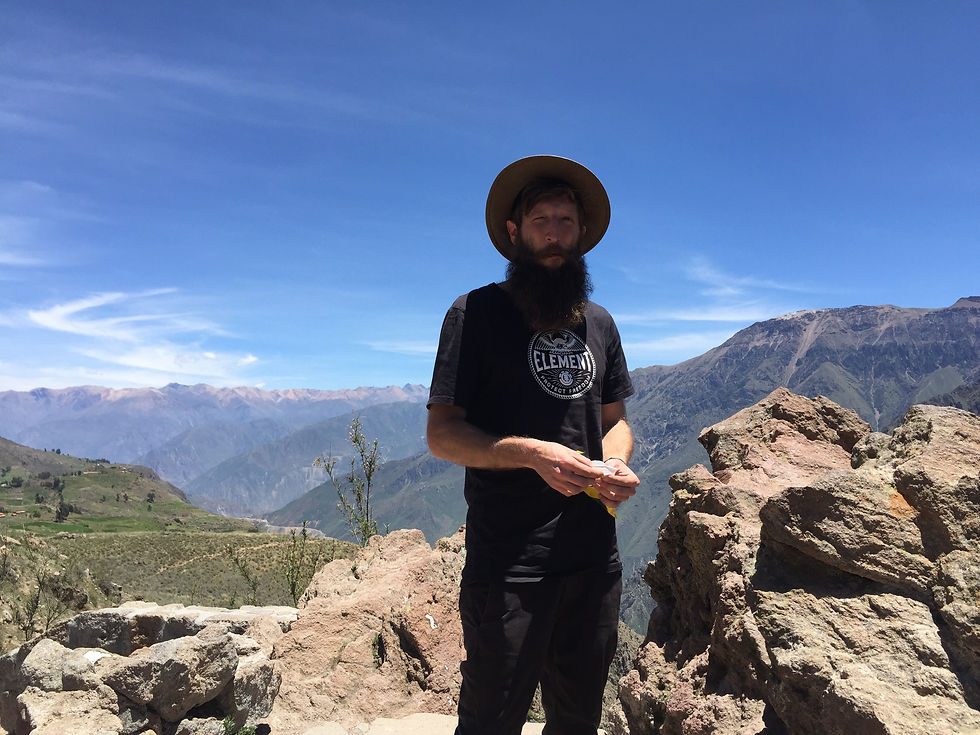
Adam in his new hat
There is an important difference between America and other non-western countries. In America, there might be more than one way to skin a cat but there’s probably only one legal way. In countries like Peru, there are lots of ways to skin a cat and no one cares which one you use.
This worked to our advantage the next day. We arrived at the bus station terminal at 5 am (a 5 sole taxi ride from my house in San Lazaro), and then discovered that we’d already missed the only bus to Colca Canyon. The next bus wasn’t until 11, which would get us there too late to hike down to San Juan, our first night’s destination in the canyon. But, because I was in Peru and not America, I knew this couldn’t be the end of it.
After asking several people in my passable Spanish and retaining about 65% of their answers, I discovered there were collectivos at another spot not too far away where we could catch a bus to Chivay. Combi’s are van/minibuses most of which don’t have any kind of permit that I was aware of. They go short and long distances, within cities and between small cities and they are extremely cheap. Be sure to carry sole coins with exact change for these. Combi rides tend to be around 5 soles or less depending on how far you’re going.
We found a storefront that advertised an upcoming bus to Chivay. We still weren’t sure how we were going to get to the canyon itself but it seemed like a good a idea to get as close as we could. Upon arriving in Chivay, we were once again up a river without a paddle. We now needed to get to Cabanaconde, where the trailhead was and there were no buses headed that way until 2, which would mean waiting around and still not having time to get down to San Juan for the night. Finally, a man approached us who had heard we were looking for a ride to Cabanaconde and said he would take us for 10 soles. We agreed and piled into his pickup where his wife was sitting in the front seat.
This ended up being even more ideal because he let us stop and get out at the famous Cruz del Condor, an incredible outlook point where the Condors gather around 9 am everyday and swoop across the valleys and mountains. It’s a farming area, and fields of quinoa, camote, and other crops stretch out beneath you. On a clear day, you can still see the beautiful volcanoes that surround Arequipa. In short, it’s an astounding view.
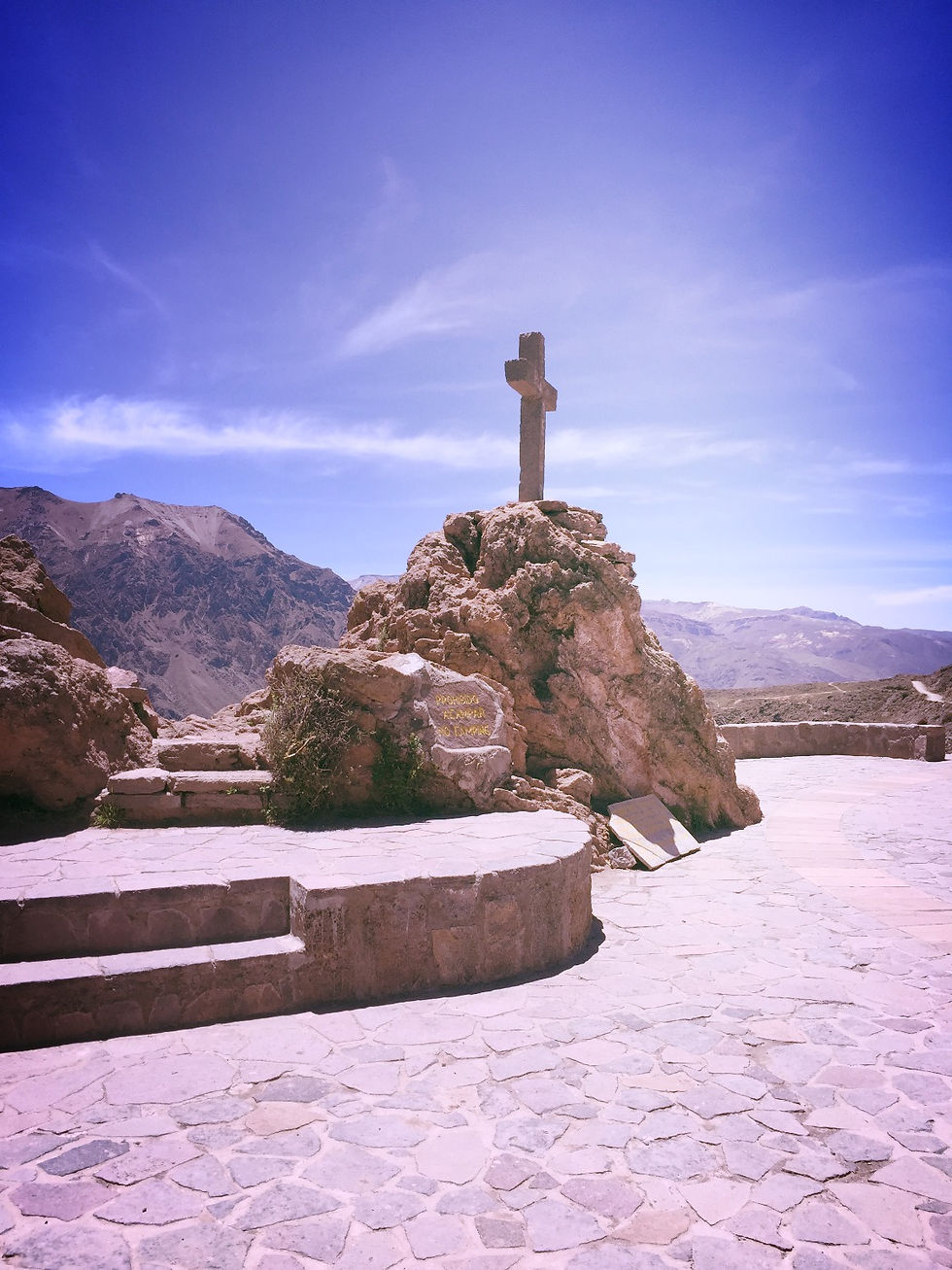
After a short drive, we arrived in Cabanaconde, the starting point for out trek. Adam found a map that showed various treks throughout the canyon.

We bought some water and a few snacks, asked directions to the trailhead, and went on our way. It was a fifteen minute walk from the town center along the highway to the starting point. It wasn’t exactly clearly marked, but it was easy enough to find.
This walk down into the canyon was more difficult than I anticipated. It was pretty steep switchbacks straight down about 3,000 feet. Adam, it turned out, was a commander in the Israeli army and was used to long hikes with a 100-pound pack. He wasn’t too bothered but Stacey and I were both a bit worried about tumbling down the trail into the deep canyon once our knees got tired and shaky. The trail was gravel that was easy to lose your footing on.


When finally we reached the bottom of the canyon, we came to a bridge across the river. Once we crossed it, a small woman in traditional dress was waiting for us. She only spoke Quechua and so motioned us along a hidden path off of the trail along an irrigation canal. We followed her with a shrug. She took us along a rocky and difficult 30 minute walk that required scrambling and climbing over large rocks. Finally, we reached a small collection of cabins and a small covered area where there were tables. There were two outdoor showers (cold water only) and one of the most incredible views I’ve ever seen. It was 10 soles, which included both dinner and breakfast. We accepted immediately.

San Juan
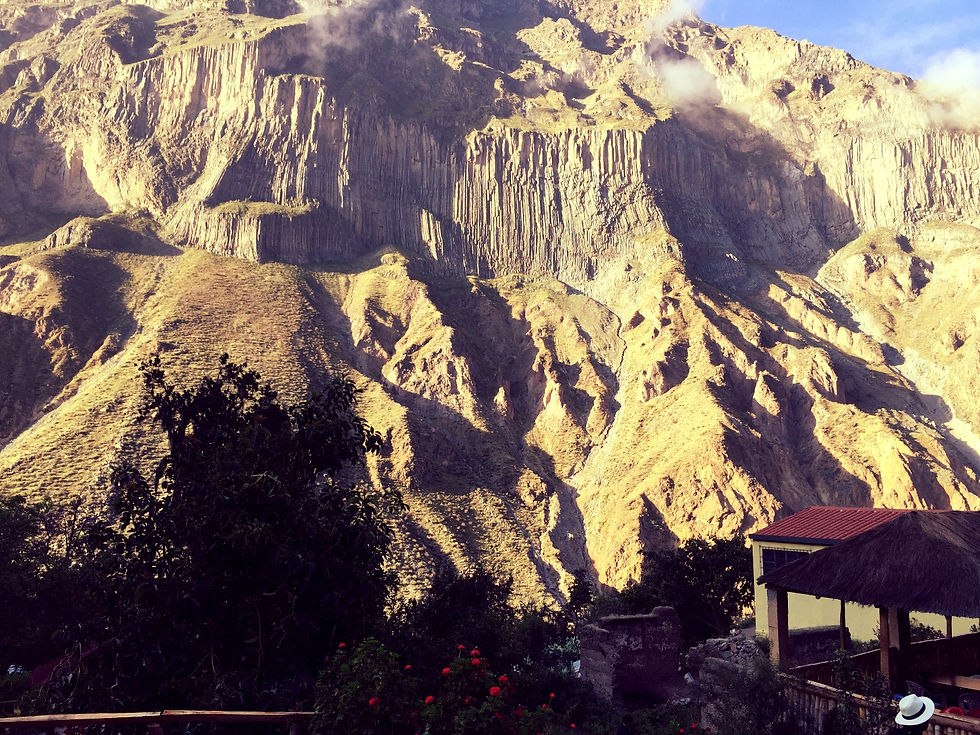
View from San Juan
There was another group staying there with a tour, mostly Spanish-speaking, and we chatted with them over a simple dinner of rice and meat, vegetable and bean stew. We enjoyed ourselves immensely and slept soundly. I was surprised to find that there was even electricity in our room.
We took our time the next morning, leaving after the group. It was hard to leave such a beautiful, calm place. It was a six-hour hike to the Oasis (subido y bajado). The Oasis was by far the most developed part of the canyon. There were several lodges complete with pools and simple dining halls. There were also campground sites for backpackers.

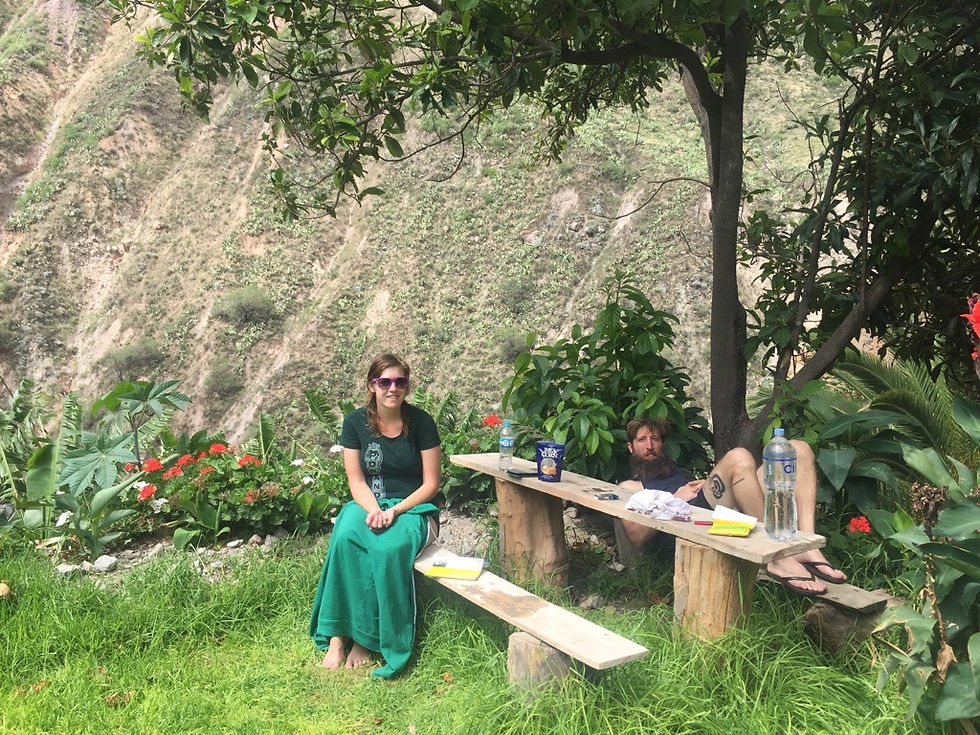

There was a small, difficult to follow trail that led down to the river in the bottom of the canyon. We could barely see a waterfall a ways down the river and we waded to a pair of large boulders and sat in the spray of what felt like a secret.


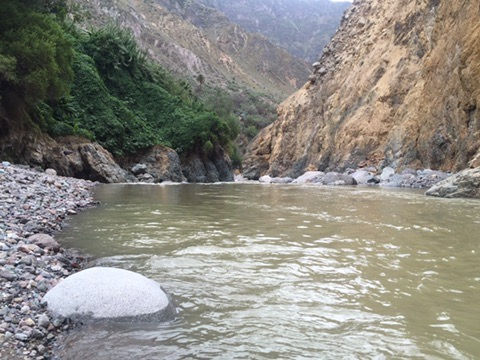

The next morning we hiked out of the canyon, which definitely tested my stamina. It was now 3,000 feet up steep switchbacks in the punishing sun (don’t forget sunscreen whatever you do!)
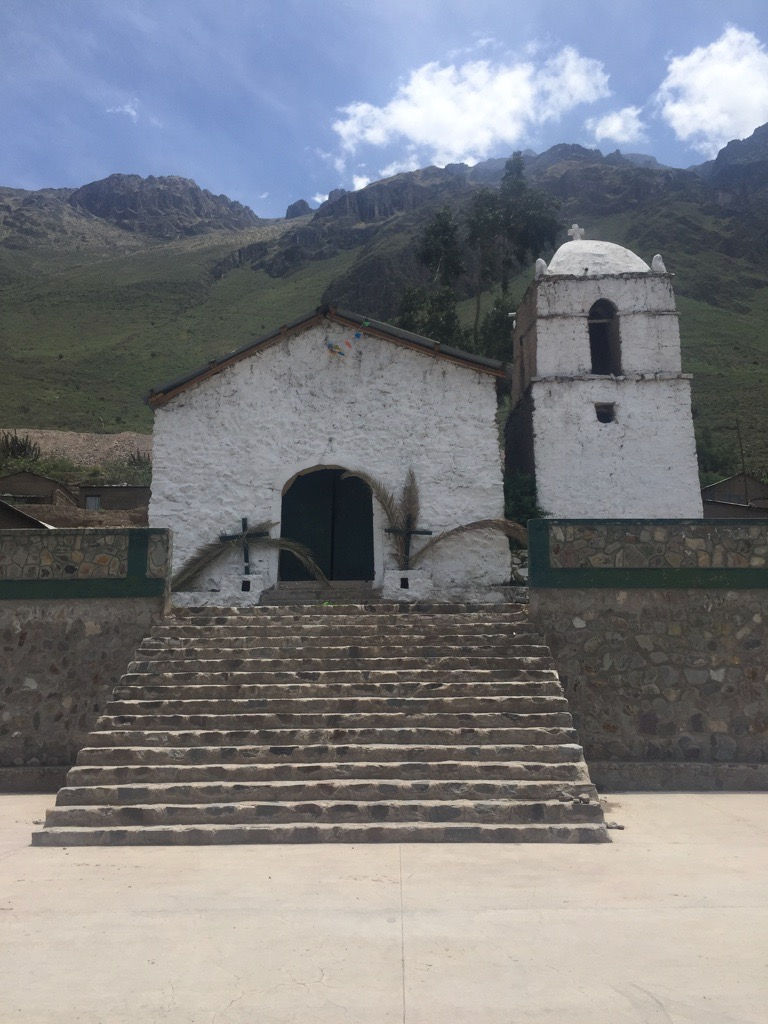


I could have easily spent a week exploring the canyon. It is the second deepest canyon in the world, and it is easy enough to navigate without a guide. This adventure is not to be missed if you find yourself in southern Peru.




Comments